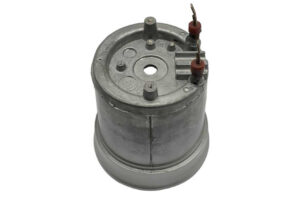Electronic Die Casting: Revolutionizing Precision Manufacturing in the Electronics Industry
 It is a cutting-edge manufacturing process that has transformed the production of intricate electronic components with exceptional precision and efficiency. With the rapid advancement of the electronics industry, the demand for high-quality, complex parts continues to grow. In this article, we will delve into the world of electronic die casting, exploring its benefits, applications, and the impact it has had on the electronics manufacturing landscape.
It is a cutting-edge manufacturing process that has transformed the production of intricate electronic components with exceptional precision and efficiency. With the rapid advancement of the electronics industry, the demand for high-quality, complex parts continues to grow. In this article, we will delve into the world of electronic die casting, exploring its benefits, applications, and the impact it has had on the electronics manufacturing landscape.
1. Understanding Electronic Die Casting:
Electronic die casting, also known as pressure die casting or simply die casting, is a manufacturing process that involves injecting molten metal into a custom-designed mold cavity under high pressure. The molten metal fills the mold, solidifies rapidly, and takes the shape of the desired component. This technique ensures the production of intricate and finely-detailed electronic parts with minimal post-processing requirements.
2. Benefits:
2.1 Exceptional Precision and Reproducibility:
It offers unparalleled accuracy and reproducibility in the manufacturing of electronic components. The high-pressure injection ensures that the molten metal fully captures even the most intricate details of the mold, resulting in parts with precise dimensions and complex geometries.
2.2 Superior Surface Finish:
The die casting process facilitates the production of electronic components with superior surface finishes. The high-pressure injection and rapid cooling prevent the formation of imperfections like porosity, ensuring a smooth and flawless exterior. This advantage eliminates or minimizes the need for extensive finishing operations, reducing production time and costs.
2.3 Cost-Effective Production:
It is a cost-effective manufacturing process for electronic components. The ability to produce complex shapes and intricate details in a single operation eliminates the need for additional assembly or machining processes. This streamlined approach reduces labor costs, material waste, and overall production time, resulting in significant cost savings.
2.4 Versatility in Material Selection:
Electronic die casting accommodates a wide range of materials, including aluminum, zinc, magnesium, and their alloys. This versatility allows manufacturers to select the most appropriate material to meet specific requirements, such as durability, conductivity, thermal management, and weight optimization.
3. Applications:
3.1 Consumer Electronics:
Electronic die casting plays a vital role in the manufacturing of consumer electronics, such as smartphones, tablets, laptops, and gaming devices. The process enables the efficient production of intricate components like frames, housings, connectors, and heat sinks, ensuring high-quality and visually appealing end products.
3.2 Automotive Electronics:
The automotive industry heavily relies on electronic components for various systems, including infotainment, safety, and powertrain. It enables the production of complex automotive electronic parts with superior structural integrity, thermal management capabilities, and electrical conductivity.
3.3 Industrial Electronics:
Industrial electronics, including control systems, power electronics, and automation equipment, benefit from electronic die casting. The process ensures the production of components that can withstand harsh operating conditions while maintaining precision, efficiency, and reliability.
3.4 Medical Electronics:
The medical industry demands high-quality electronic devices and equipment to ensure accurate diagnoses and safe patient care. It provides the necessary precision and durability required for medical electronic components, including monitors, diagnostic devices, and surgical equipment.
Conclusion:
Electronic die casting has revolutionized the precision manufacturing of electronic components, offering exceptional precision, efficiency, and cost-effectiveness. Its ability to produce intricately detailed parts with superior surface finishes has transformed the electronics industry. As the demand for high-quality electronic components continues to grow, it will remain a vital process, enabling the production of innovative devices that power our modern world.






